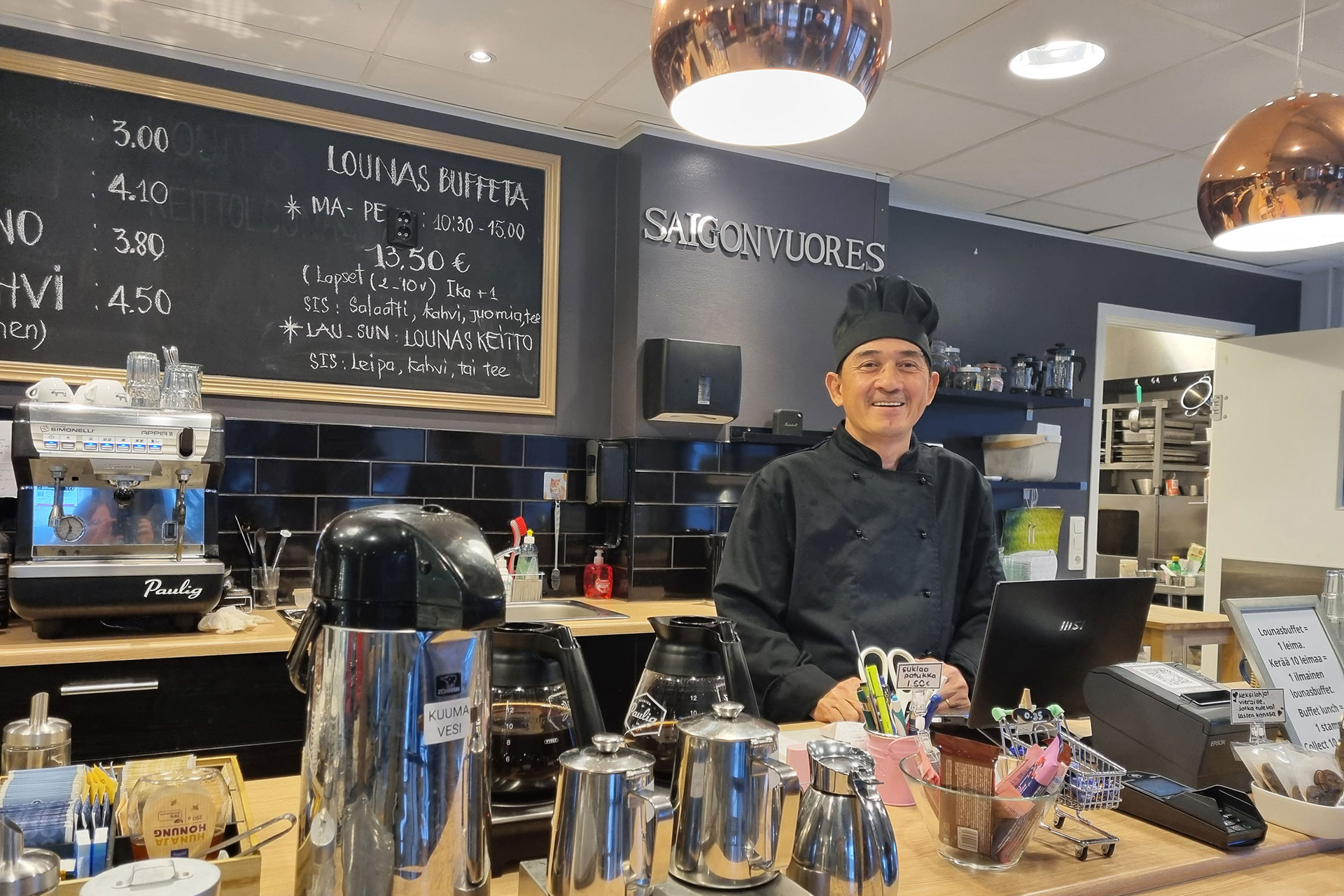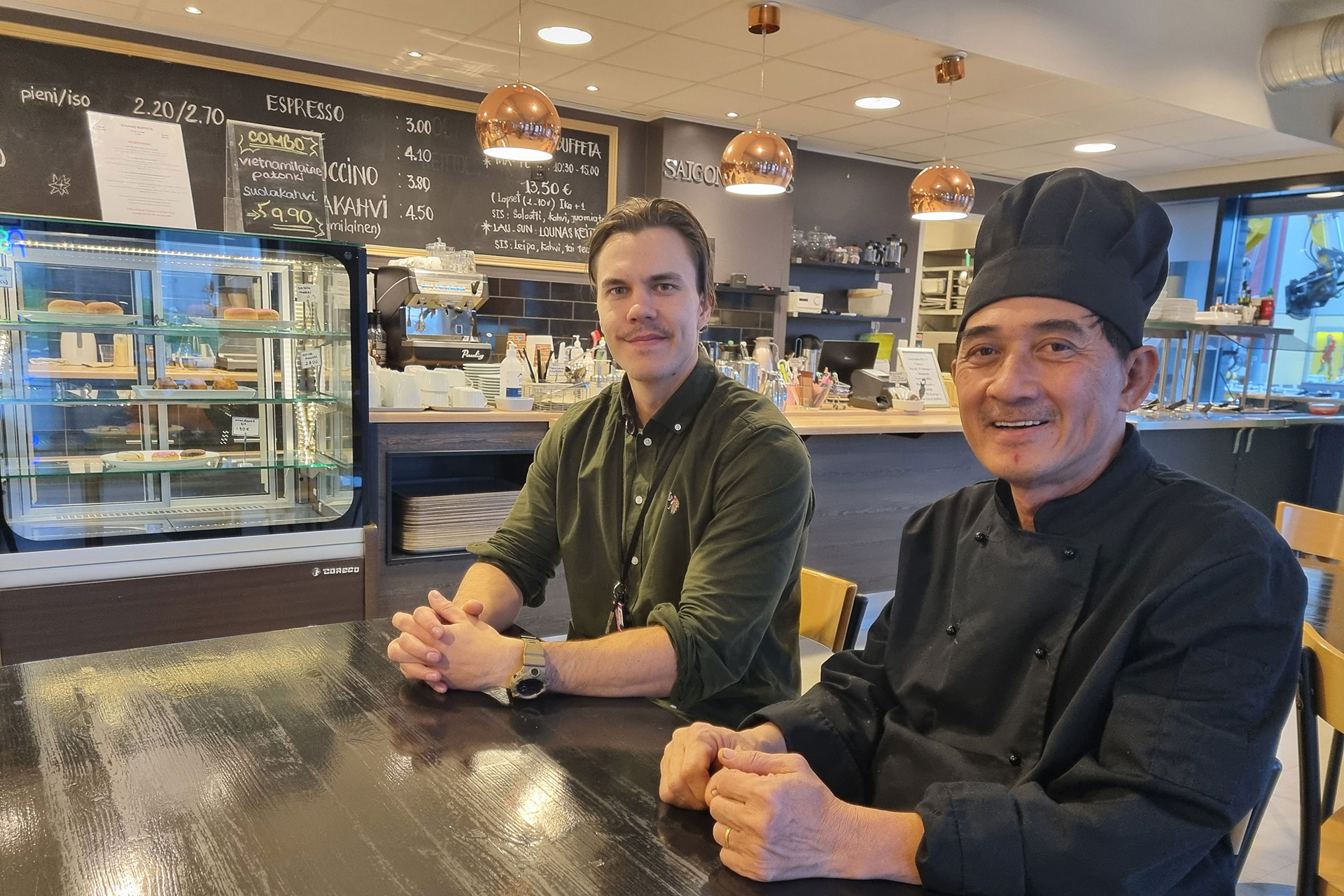From Vietnam to Vuores - Vincenth studied to become a chef in the country of his dreams and set up his own restaurant
Tampere Adult Education Centre organises vocational education and training for groups from non-EU countries. Ngo Duong Mình Nhut (Vincenth) from Vietnam had heard so many good things about Finland that he applied to TAKK as a restaurant student when the opportunity arose. In October, Saigon Vuores opened and Vincenth became the first TAKK global VET student to set up his own restaurant.

- The customers have been particularly interested in the Vietnamese salt coffee. And chicken curry has been popular, new entrepreneur Ngo Duong Mình Nhut (Vincenth), the owner of Saigon Vuores, reveals.
Vincenth, 53, and his family moved from Vietnam to Finland in February this year. He and 19 other Vietnamese came to Tampere Adult Education Centre as on-demand training students to study to become restaurant chefs. This is the second group of students from Vietnam who have come to study for a vocational qualification in food services.
Before moving to Finland, Vincenth worked in Vietnam in alcohol import business. He had heard good things about Finland and applied for the training when the opportunity arose.
- I wanted my children to grow up in a good country. That was the main reason why I wanted to come to Finland.
Now Vincenth and his family live in Tampere. The children go to school and spend weekends helping Vincenth and his wife at the restaurant they opened in October.
VET students graduate and find employment quickly
Currently, TAKK has around 150 non-EU students. In addition to Vietnam, there are students from the Philippines, India and Nigeria. The groups study in different fields.
The first group of Vietnamese restaurant students graduated at the end of October. Of the group of 20, two are looking for work, two are working part-time and all the rest are employed full-time in their field.
- Apprenticeships for non-EU students are common, especially in the restaurant sector. Employers like them so much during the traineeships that they change their training into an apprenticeship after the traineeship, says Peter Perttula, TAKK's Director of International Partnerships.
In an apprenticeship, the student is in a paid employment relationship.
In both Vietnamese groups, the students have completed the studies in a year, even though it is a year and a half course.
- This is a positive signal that students can complete their studies in a year and graduate early. We do not require the entrants to have any experience in the restaurant sector, as we can teach everything related to the chef profession at TAKK. The common factor among the students is that they are motivated and want to start a new career, says Perttula.
Vincenth is the first TAKK tailor-made vocational program student to set up his own restaurant. He will complete his on-the-job training and competence demonstration test in his own company. He is supported by a mentor, another restaurant entrepreneur.
- It's a lot to do, but I think that if I try my best, I can succeed, Vincenth says.

Language and culture learning continues at work
For Vincenth, the best thing about studying at TAKK has been the practical approach.
- For example, I have learned a lot about different kitchen appliances. If there are any questions, the instructor is always there to help.
In addition to the studies of restaurant field, the training includes Finnish language studies. Before the actual studies begin, the students spend five weeks studying Finnish. Then the vocational studies begin, during which they study Finnish for about half a day or a day a week.
- Many educational institutions teach the language to newcomers in distance learning courses in the country of origin to shorten their study time in Finland. Our students, on the other hand, study Finnish on the spot in Finland. Learning a language remotely is not easy for an adult - you must be physically present in the classroom or at work to learn the language, says Peter Perttula.
- It is the student's responsibility to continue learning the language after graduation.
Vincenth is happy to learn more about Finnish culture and language through his work. In particular, he will get to know Finnish eating habits. He has, for example, noticed that knowing the allergens is important to a Finnish restaurant visitor.
- I have noticed that when customers order and receive their portions, they take a picture of the food. That's a good sign - no one takes a picture of food they don't like, Vincenth laughs.